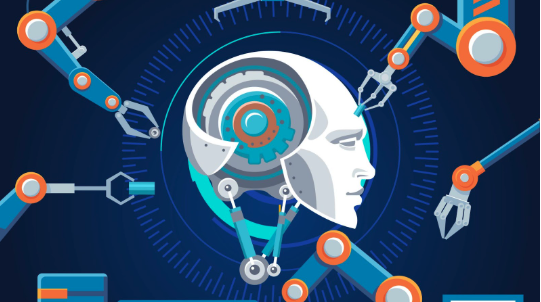
Incorporating AI is one of the top priorities of all knowledge management teams. As companies deal with massive amounts of data, the biggest problem is managing and extracting the relevant data and insights when needed.
Given the complexities, artificial intelligence (AI) can be a game changer. A study suggests that an effective and reliable knowledge management system can reduce the time to search for relevant information by 35%. It will also help in employee onboarding and training, reduce the burden on support staff, and improve customer support through virtual support using AI chatbots and self-service.
With its various applications, AI in the knowledge management industry will contribute to new innovations and support businesses with the right tools to provide practical insights with unmatched efficiency.
Applications of AI in knowledge management industry
AI in knowledge management is transformative as it enhances business productivity, decision-making, and collaboration. Among the many significant uses of AI in knowledge management are the following:
AI-powered intelligent search
AI-enabled search engines use natural language processing(NLP) and machine learning(ML) methods to increase the quality and relevance of the results returned. Because of this efficiency, information retrieval is the part of AI most utilized in knowledge management.
AI algorithms are, however, very good at sifting through all that data to make it accessible and actionable. Automating the retrieval process, AI ensures that the right information flows to the right people at the right time. Today, users can get information about general and often-used search phrases just when they need it most. The change leads to greater productivity and better decision-making because data is converted into an asset for strategy.
AI chatbot for personalized assistance
64% of businesses believe that chatbots will allow them to provide a more customized support experience for their customers. As customers are increasingly interested in using a chatbot instead of queuing for a customer call, the industry has revolutionized with more AI features incorporated.
AI not only assures faster and more accurate answers, but it also helps personalize the user experience. This guarantees a higher level of customer experience and helps the team resolve more customer queries.
It replaces human support when answering FAQs, product details, subscriptions, and related inquiries.
Predictive and advanced analysis
AI-driven analysis helps knowledge managers to make informed decisions, improve knowledge base content, and train the chatbots.
In organizations, often, we see employees struggle to get a piece of information. With AI chatbots, predictive analytics recommend relevant articles and expert-based user queries to employees. Approaching quicker and faster answers without wandering and wasting time in searching a cluttered knowledge repository.
For example,
- Automate Knowledge gap analysis
- User engagement analysis
- Personalized knowledge delivery
- Data-driven knowledge base optimization
We understand that AI is transforming the customer support and service industry, but what about the Knowledge management industry? It prepares the team with enough data-driven insights, Advanced search capabilities, quicker knowledge creation, information organizing, and better collaboration among teams.
Content tagging and categorization automation
Cluttered information is of no use. Tapping and categorization are the best approaches to keep your content organized and structured, and they are the best ones that you can’t afford to miss. With the rise in AI, this task is made simple, for example, Document360’s AI tag manager quickly generates relevant tags for the content and helps you quickly organize and categorize the content. This tagging is very helpful when a user searches through the search bar, it helps to pick the relevant article for the search query.
This makes a great deal of difference in managing and organizing the knowledge library and in how users search it.
Automate repetitive tasks
We agree that repetitive tasks are time-consuming, boring, and less productive. With the emergence of AI in every field we see improvement in productivity and efficiency. So as with AI in knowledge management, we can use AI tools to handle routine processes such as organizing content, tagging, workflow, and updating versions.
To automate such tasks, Document360 offers AI features like
- AI FAQ generator to quickly generate FAQ questions and answers.
- AI tag recommender efficiently organizes files and enables quick search.
- AI summarizer is used to summarize long documents in a consumable format.
- An AI business glossary generator will generate a glossary for the terms used in the articles.
Content Summarization
Generative AI summarises long texts, research papers, or articles into short summaries using ML and NLP techniques. The same function could be used by organizations to summarize knowledge-based articles about their organization in quick summaries. A good AI knowledge management system can ensure that it catches the important elements of the documents while keeping the original context intact.
While these summaries save consumers time, they facilitate the appreciation of core messages without having to sift through all the words. Users could easily access short summaries before making informed judgments on whether the reading material was required. It’s highly helpful in a company that needs to make quick judgments as it skims through organizational documentation.
Conclusion
AI completely changed how knowledge bases were used and managed. These technological developments will definitely help the company optimize the usage of information in all aspects, from business operations to employee onboarding to customer support.
AI is one of the best ways to solve problems with data storage, access, and use. The use of AI-powered knowledge management systems shows a shift toward a more flexible, smart, and shared information space.
AI is here to stay, and this is one opportunity the knowledge management professional should adapt to drive innovation, enhance efficiency, and make better judgments.




